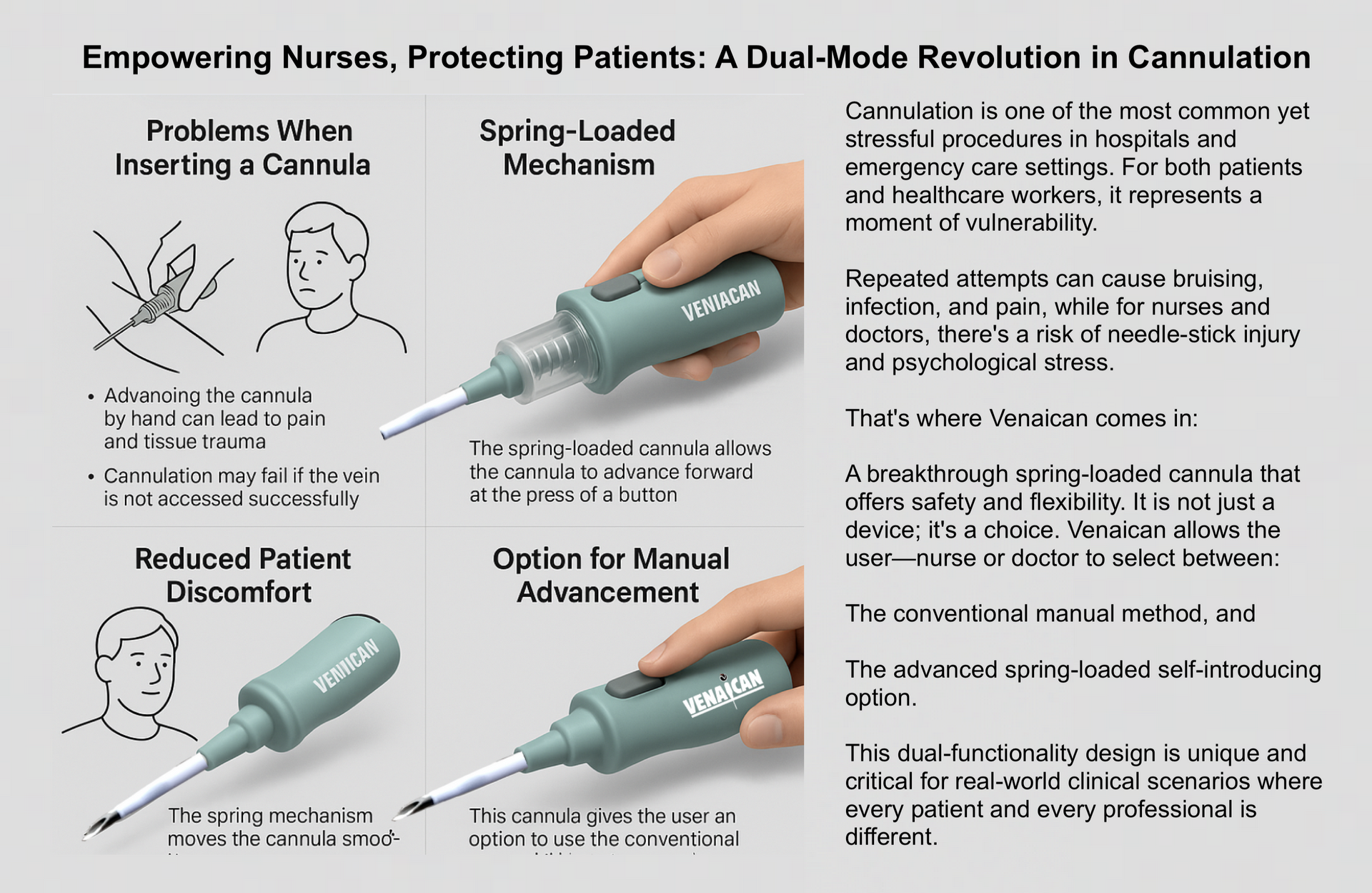Venaican: A Revolutionary Leap in Cannulation Safety and Precision
In modern medicine, few procedures are as routine yet technically demanding as intravenous (IV) and arterial cannulation. Despite being a common step in patient care, cannulation challenges even experienced healthcare providers, especially in emergencies, pediatric care, or infectious disease outbreaks. The Venaican spring-loaded cannula, developed by Dr. Kadiyali Srivatsa, is a revolutionary innovation that redefines how we approach this critical procedure.
Why Cannulation Remains Daunting
Inserting a cannula requires precise control, steady hands, and clinical confidence. Here are the significant problems medical personnel face:
- Multiple failed attempts, especially in dehydrated or critically ill patients.
- Vein collapse or movement during insertion.
- Needlestick injuries to staff.
- Hospital-acquired infections, including those caused by antimicrobial-resistant (AMR) organisms.
- Cross-contamination and reuse risks, particularly in under-resourced settings.
- Stress and errors during pandemics occur when healthcare workers wear PPE and must work under pressure.
How Venaican Overcomes These Challenges
Venaican is not just another cannula — it's a spring-loaded, self-introducing device designed to increase safety, success rate, and ease of use in one elegant system. Here's how it changes the game:
1. Automatic Advancement, Minimal Effort
The spring mechanism allows the user to release a controlled plunger, allowing the cannula to glide forward precisely into the vein, reducing manual errors and operator fatigue.
2. Reduced Number of Insertion Attempts
By stabilising the insertion process, Venaican improves first-attempt success rates, reducing patients' trauma and saving critical time in emergencies.
3. Manual Needle Retraction for Added Safety
After insertion, the needle and blood chamber retract manually into a locking compartment, preventing reuse, contamination, or accidental injury to the user.
4. Protection Against AMR Infections
Infection prevention is a cornerstone of Venaican's design. It minimises contact, ensures single-use safety, and helps stop the spread of multidrug-resistant pathogens that often colonize hospital cannulas and lines.
5. Designed for Pandemic and Crisis Scenarios
In outbreaks like Ebola, COVID-19, and future unknown pandemics, inserting a cannula with gloved hands while working in oxygenated suits is nearly impossible. Without complete clinical training, Venaican enables even semi-skilled staff or patients to perform cannulation safely.
A Tool for the Future of Healthcare
The Venaican cannula is ergonomic, cost-effective, and engineered for low-resource and modern ICUs. It provides unmatched safety for patients and caregivers while offering hope during future global health emergencies. With its unique mechanism and user-centric design, Venaican is not just an upgrade but a transformation.

